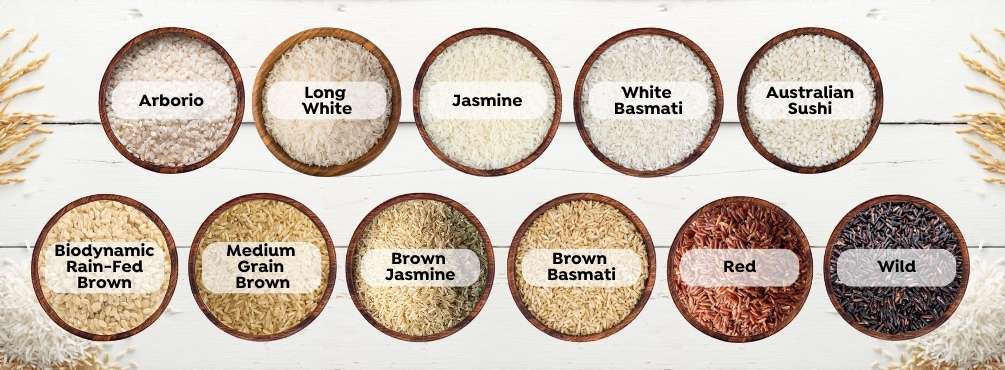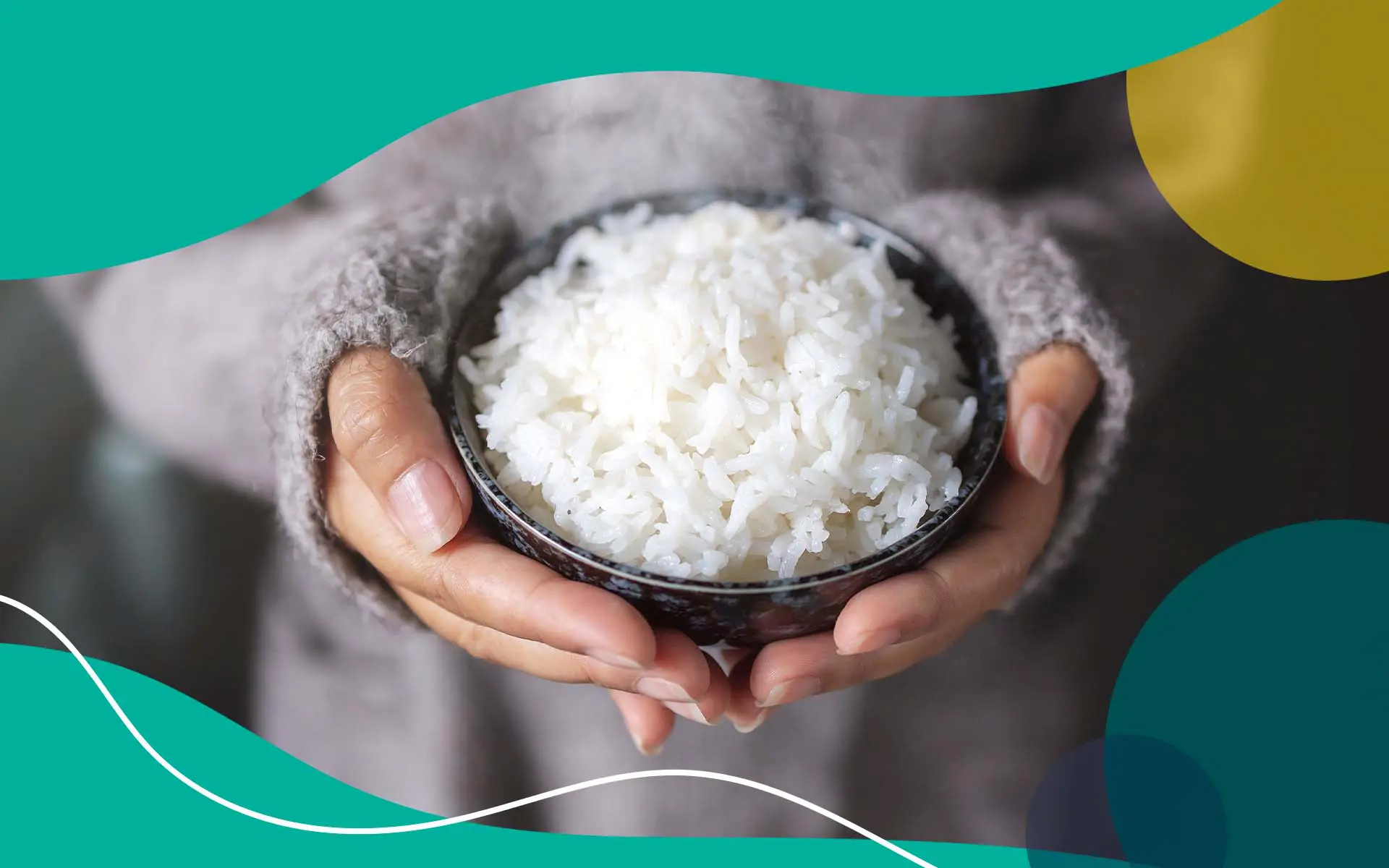In the realm of nutrition, rice often finds itself at the center of conflicting opinions. Its perceived role in weight management and overall health has led to misconceptions, some labeling it as a less nutritious option. Yet, a deeper dive into its nutritional profile unveils a tapestry of health benefits often overlooked.
Let’s uncover the truth about rice, examining its place in a balanced diet and dispelling common myths.
Myth: Rice is a Culprit in Weight Gain
Reality: Rice, in moderation and within a balanced diet, isn’t inherently responsible for weight gain. The key lies in portion control and overall calorie intake. A cup of cooked rice contains roughly 200 calories, making it a suitable part of a healthy diet when accompanied by lean proteins and vegetables.
Myth: Rice Lacks Nutritional Value
Reality: Contrary to the belief that rice lacks nutrients, varieties like brown and wild rice are rich in essential vitamins, minerals, and fiber. Brown rice, retaining its bran layer, is abundant in B vitamins, magnesium, and antioxidants, offering substantial nutritional benefits compared to its refined counterpart.
Myth: Rice Causes Blood Sugar Spikes
Reality: While white rice can elevate blood sugar levels due to its higher glycemic index, balancing it with proteins, fiber-rich foods, or opting for varieties like brown rice helps mitigate this effect. Moderation and portion management are crucial in managing blood sugar levels.
Myth: Rice is Only Empty Carbs
Reality: While rice is primarily a carbohydrate, it also contains proteins and small amounts of fats. Depending on the variety, it can offer a range of essential nutrients.
Myth: All Rice is Genetically Modified
Reality: While some varieties are genetically modified, many rice types available in the market are traditional and non-GMO. Certified organic and specific non-GMO brands offer options for those concerned about genetically modified organisms.
Myth: Rice Causes Weight Gain
Reality: Overconsumption of any food, including rice, can contribute to weight gain. However, moderate portions of whole grain rice, along with a balanced diet and active lifestyle, do not directly cause weight gain.
Myth: Rice Has No Place in a Weight Loss Diet
Reality: Whole grain rice, in moderation, can be part of a weight loss diet due to its fiber content, which aids in satiety. Proper portion control and pairing rice with vegetables and lean proteins can contribute to a balanced weight loss plan.
Myth: Rice is Gluten-Free by Default
Reality: Not all rice products are inherently gluten-free. Cross-contamination during processing or added ingredients in certain rice products might contain gluten. Opting for certified gluten-free rice ensures safety for individuals with gluten sensitivities.
Myth: All Rice Has High Glycemic Index (GI)
Reality: While some rice varieties have a high GI, such as sticky rice, many others, like basmati or brown rice, have a moderate or low GI. These varieties release sugar into the bloodstream more gradually, aiding in better blood sugar control.
Myth: Rice Has No Health Benefits Beyond Energy
Reality: Rice contains essential nutrients like vitamins, minerals, and antioxidants. Brown rice, for instance, is a good source of fiber, B vitamins, and minerals like magnesium and selenium, offering various health benefits.
Myth: Rice is Bad for Heart Health
Reality: Contrary to popular belief, studies suggest that moderate rice consumption might actually be linked to reduced risks of heart disease and stroke, especially when part of a balanced diet rich in fruits, vegetables, and lean proteins.
Myth: All Rice Varieties Are Equally Processed
Reality: White rice goes through more processing, stripping away some nutrients compared to brown or wild rice, which retain their outer bran layers. Choosing less processed rice varieties can offer more nutritional benefits.
Myth: Rice Should Be Completely Avoided in a Low-Carb Diet
Reality: While rice contains carbohydrates, certain low-carb diets allow for moderate consumption of whole grain rice varieties in controlled portions, especially for those engaging in physical activities requiring higher energy levels.
Health Benefits of Rice
- Energy Powerhouse: Rice serves as an excellent source of carbohydrates, fueling the body’s daily activities and providing sustained energy.
- Nutrient Richness: Brown rice, especially, brims with fiber, vitamins, and minerals, supporting overall health and vitality.
- Digestive Support: Fiber in brown rice aids digestion, promotes regularity, and nurtures a healthy gut environment.
- Heart Health: Whole grain rice varieties contribute to heart health by reducing LDL cholesterol levels and mitigating the risk of heart disease.
- Weight Management: Appropriately portioned whole grain rice helps manage weight by inducing satiety and controlling excessive hunger.
Incorporating Rice into a Balanced Diet
- Opt for Whole Grains: Embrace brown, black, or wild rice for increased nutritional content over refined white rice.
- Portion Moderation: Control portions to maintain a balanced calorie intake, combining rice with protein sources and vegetables for a comprehensive meal.
- Diversify Varieties: Experiment with various types of rice to introduce diverse nutrients and flavors into your diet.
In conclusion, the misconceptions surrounding rice often overshadow its genuine health benefits. However, when approached mindfully as part of a well-rounded diet, rice proves to be a valuable component, contributing essential nutrients and playing a positive role in overall health and well-being. Understanding its true potential helps demystify myths and appreciates rice for its rightful place in a nutritious lifestyle.
Read more: The Journey of Rice: From Paddy to Plate




